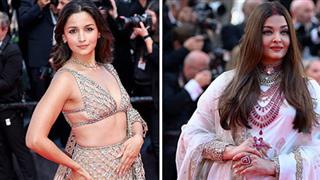Yash Chopra probably knew what he was doing when he signed on greenhorns Jeet-Pritam for Mere Yaar Ki Shaadi Hai. After all, this film will set the course of son Uday's career. But if Mere Yaar... bombs, Jeet-Pritam couldn't be blamed for it – not that music directors are often blamed for a film flopping. Though this duo is new – their earlier release was Tere Liye in 2000 in which lyricist Abbas Tyrewala negated a rather decent effort by them – their compositions hardly reflect any freshness. Jeet-Pritam repeat a sound that could well be Nadeem-Shravan's.
The duo has played it safe with this soundtrack; no innovations here. Not even any new singers. And playing it safe is more often than not unexciting. As for Javed Akhtar's lyrics on this soundtrack, he's far from his element here. This soundtrack opens with Ek Ladki, rendered by Alka Yagnik and Udit Narayan. It's a standard Hindi film orchestration and arrangement, but a rather neat one. Not cluttered by any standard. It's the kind of track you can have in the background while you're checking stock movement in the paper, it won't disturb you one bit. If that's the kind of music Jeet-Pritam like to create -- that doesn't inspire or perk up the listener's ear – then they have succeeded.
 The second track, Sharara has Arabic influences, with interludes of chanting monks. It's the big, pounding bass drum that's jarring. Rendered by
Asha Bhosle, it sounds just like what you'd expect her to sing – a catchy, charming tune. Track 3 is the title track rendered by
Alka, Udit and Sonu Nigam. It has a big percussion section, typical of the traditional north Indian wedding songs with not a single new element to it. Like we said, playing it safe can also be unexciting.
Side B opens with Jaage Jaage, sung by Alka, Udit and Sonu again. Here fortunately, Jeet-Pritam have ventured out a bit from the standard sound. It has impressive vocal harmonies and live guitars; the later element being a prominent sound on their debut that had endeared many a critic. But unfortunately, a pounding bass drum, another prominent feature in this duo's sound, makes the track ineffective. The next track,
Humne Suna Hai is a big production, featuring Alka, Udit, Jaspinder Narula and Sudesh Bhosle.
The second track, Sharara has Arabic influences, with interludes of chanting monks. It's the big, pounding bass drum that's jarring. Rendered by
Asha Bhosle, it sounds just like what you'd expect her to sing – a catchy, charming tune. Track 3 is the title track rendered by
Alka, Udit and Sonu Nigam. It has a big percussion section, typical of the traditional north Indian wedding songs with not a single new element to it. Like we said, playing it safe can also be unexciting.
Side B opens with Jaage Jaage, sung by Alka, Udit and Sonu again. Here fortunately, Jeet-Pritam have ventured out a bit from the standard sound. It has impressive vocal harmonies and live guitars; the later element being a prominent sound on their debut that had endeared many a critic. But unfortunately, a pounding bass drum, another prominent feature in this duo's sound, makes the track ineffective. The next track,
Humne Suna Hai is a big production, featuring Alka, Udit, Jaspinder Narula and Sudesh Bhosle.
 It's a happy little song with a tight chorus. And here again, Jaspinder appears -- despite her unique voice and immense talent – like an item. Jaspinder is to soundtracks what Malaika Arora is to films. Items. The final track,
Hum Duno Jaisa has an elaborate violin set and, once again, a jarringly big and monotonous beat. It's rendered by
Sunidhi Chauhan and KK. Sunidhi makes an obvious, and meaningless, effort to sound beyond her years, resulting in her sounding far less pleasurable than she usually does. KK is but of course completely wasted on the track.
It's a happy little song with a tight chorus. And here again, Jaspinder appears -- despite her unique voice and immense talent – like an item. Jaspinder is to soundtracks what Malaika Arora is to films. Items. The final track,
Hum Duno Jaisa has an elaborate violin set and, once again, a jarringly big and monotonous beat. It's rendered by
Sunidhi Chauhan and KK. Sunidhi makes an obvious, and meaningless, effort to sound beyond her years, resulting in her sounding far less pleasurable than she usually does. KK is but of course completely wasted on the track.
Though this soundtrack leaves nothing behind in the ear – or the mind -- after hearing it, it must be said that the arrangements are soft and neat, barring those occasions when the duo go overboard with the percussions. Jeet-Pritam don't normally clutter their compositions with unnecessary instrumentations. But it's one of those albums that can gather dust on the shelf. They don't spark any emotions, leave alone inspire. Because Jeet-Pritam don't dare to be different. If even new music directors don't try out a new sound in Bollywood, we surely have a lot to worry about. You may not end up watching this film after hearing the soundtrack. It will only enrich the visual component of the film.



















